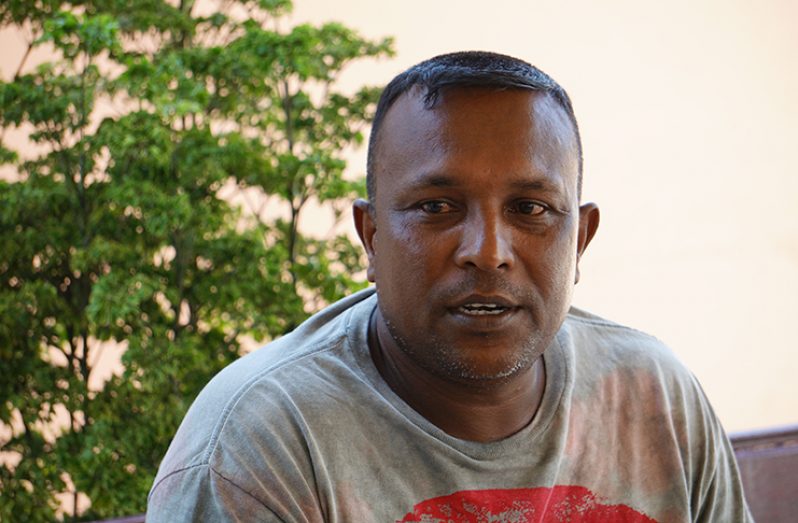-Why Amarnauth Hemraj switched careers
By Michel Outridge
A TYPICAL day in the life of a fisherman is not for the faint-hearted, it is not for the weak and definitely not for people who get seasick easily.
To survive the elements, to manoeuvre the seine, to haul the catch, all take some amount of skills.
If anyone would have told Amarnauth Hemraj that he would become a fisherman following the closure of the Skeldon Sugar Estate some years ago, he would have laughed and thought that they were crazy to even suggest that idea.
Due to the unavailability of jobs in his No. 74 Village however, he decided to turn to the sea, where he eventually became the captain of a fishing boat and a regular in open water.
The father of three told the Pepperpot Magazine that he was a cane-cutter, which entailed hard labour in humid conditions, but he was accustomed to it.
Hemraj explained that he thought long and hard about his next move when the estate was closed and with little or no options, he opted to become a fisherman.
The 42-year-old worked his way up the ladder quickly and was soon given captaincy of one of three fishing boats owned by a Skeldon resident.
Transitioning from the estate to the water was no easy task and rewards were few and far apart.
Hemraj and his crew of six would venture out to the Corentyne River, which separates Guyana from Suriname and would fish for five to six days at a time before returning to shore.
“We would fish mostly in an area called Jumbie Island, just off Orealla Village in the Corentyne River and sometimes we throw our net and make our catch in one day and other times we would not get any fish, despite being there for six days.”
Hemraj disclosed that the boats are licensed to fish up to that location.
He reported that they would catch ‘sweet water’ fish such as ‘basha’ and ‘Lou-Lou,’ among others.
“Fishing is luck and chance, there is no guarantee whether you will get a good catch or not, because one can make target the same day within one throw of the net and then nothing,” he said.
The catch is sold to wholesalers, who then place them in refrigerated trucks and re-sell them at different locations.
Hemraj explained that the boat-owner would clear his expenses and for ration and fuel and then decide how workers are paid.
“I never got seasick, even though I am not a fisherman by trade, but to me the ‘sweet water’ doesn’t make you sick like fishing in ‘salt-water which is more difficult.”
Due to the pandemic, the Corentyne River is closed, so there is no fishing activities; as such, for the past five months Hemraj has been forced to work as a labourer two times per week to earn money for his home.
Hemraj is waiting for the pandemic to end, so that he can return to the sea.

